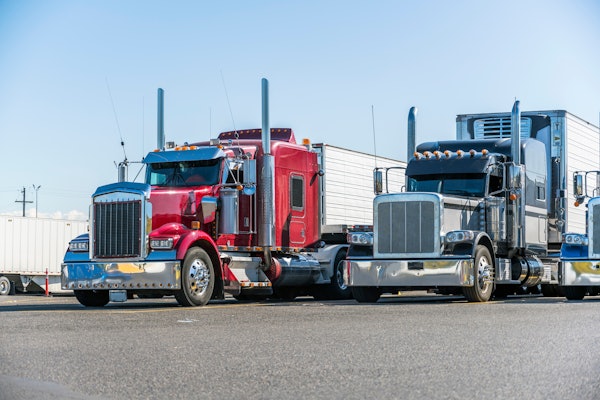As a new driver in my teens, my father instilled these parking safety reminders to me: Always park in visible and well-lit areas. Look for a spot under a bright light, and if available, near a security video surveillance. Be mindful of your surroundings and park near entrances or exits. Visibility is key. If something doesn’t feel right, it probably isn’t.
My father’s lessons imparted a sense of vigilance and confidence. For female truck drivers, feeling safe and secure is crucial for job retention.
Access to safe parking was ranked as the top issue by focus group participants on a 2024 survey conducted by the American Transportation Research Institute. The survey, which looked at identifying and mitigating challenges faced by women truck drivers, found that more than 41% of women drivers struggle to find parking daily.
The report pointed out several suggestions to increase personal safety at parking facilities, including bringing a dog, having a co-driver, parking in well-lit areas, and researching parking facilities in advance.
The necessity for secure parking extends beyond personal safety and logistical concern. It’s a matter of basic human dignity. Many women leave the industry due to safety concerns, which highlights the need for trucking companies to prioritize safe parking solutions.
Truck drivers spend hours on the road, ensuring goods are delivered across the country. After a hard day’s work, they deserve a safe and secure place to rest, just like anyone else.
Without safe parking, drivers face risks of theft, assault and other dangers. This constant threat undermines their sense of security and well-being. Ensuring safe parking isn't just about preventing crime; it's about respecting the drivers' need for peace and rest. It's about acknowledging their role in keeping the economy moving and providing them with the dignity they deserve.
Moreover, safe parking impacts their health and job satisfaction. When drivers can rest without fear, they are more likely to be alert and effective on the road. This benefits not only the drivers but also the public, as well-rested drivers contribute to safer highways.
A few states are moving the needle on prioritizing truck parking. In Minnesota, $7.75 million is allocated in fiscal year of 2025 for construction and expansion of truck parking off Interstate 94. A New Jersey Assembly bill would implement a rule for truck parking at warehouse developments. Other states such as Georgia and New York are also looking to address truck parking concerns.
According to a 2019 Jason’s Law survey, there were about 313,000 truck parking spaces across the country.
The Federal Highway Administration stated that a national Jason’s Law truck parking survey will be reissued later this year. Enacted in 2012, Jason’s Law is named in memory for Jason Rivenburg, a truck driver tragically murdered in 2009 while parked at an abandoned gas station due to a lack of parking options. FHWA stated that Jason’s Law requires the Department of Transportation to issue a truck parking survey and assessment every few years, with its previous surveys conducted in 2014 and 2019.
While these efforts are making progress, an infrastructure bill is essential to improve traffic flow and significantly increase the availability of much-needed truck parking.
Safe parking isn’t just a convenience. For women, it’s a necessity that can empower more women to join and thrive in the trucking industry. As companies recognize and address this need, they can contribute to a more inclusive and secure work environment for all drivers.













